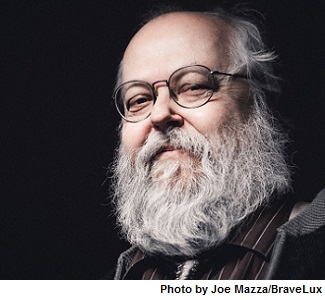- About |
- Dedication |
- Manifesto |
- Enthusiasms |
- Out there |
- L'Envoi |
- Contact

Lee Sandlin
♦♦♦
1956-2014
“The thing that I’ve discovered is that the closer you can get it to what you think is the truth, and the less you worry about how universal it is, people find the universality for you. Don’t look for generalities. Look for the truth. And the generalities will come from that.”
Lee Sandlin, a writer, covered a broad range of subjects in books and articles, producing everything from a historical look at life along the Mississippi River in the 19th century to a study of how early tornado chasing brought about the field of meteorology. ... His story ideas were seemingly simple at their core but also very ambitious.
>> Obituary in the Chicago Tribune
The man who arguably was Illinois’ best writer died not long ago, and hardly anyone south of the Loop noticed. Lee Sandlin, belle-lettrist and critic, was among the contributors to Chicago's Reader who did best what the Reader became known for doing best – long-form journalism, essays of criticism and opinion, memoirs. Lee's specialty was what Wallace Stevens described (in a poem Lee adopted as his professional manifesto) as "the poem of pure reality"...
>> James Krohe Jr. in Illinois Times
Long before he became known as the author of three books about the mysteries of the Midwest, he was quietly writing some of the best longform non-fiction in the country for the Chicago Reader.
>> Whet Moser in Chicago magazine
Lee was no ordinary TV critic. ... Not only could Lee get away with quoting Flaubert in a piece about Babylon V, he proved again and again that he loved good tinsel as much as the next guy. In fact Lee was a pretty seasoned connoisseur of trash TV ... He just refused to write about TV the way its producers might have preferred or its target audience might have appreciated.
>> J.R. Jones in the Chicago Reader
Like Walt Whitman, whom he resembled in beard and girth, Lee Sandlin was immense. He inhaled the world, and exhaled in language he was prickly in defending against editors, word by word. The stories he told in the Reader tumbled on and on as Song of Myself does, thousands upon thousands of words that did not need to be collected to become books because they were book length already. ... Lee worked the same rough clay Walt Whitman did, the common earth of American lives.
>> Michael Miner in the Chicago Reader
BOOKS
ESSAYS
- Saving His Life
- Losing the War
- American Scheme
- The Invisible Man
- Doctor My Eye
- Just a Weekend
- Road to Nowhere
- Melville's Editor
SQUIBS
MISCELLANY
American Miscellaneous Writings
818



